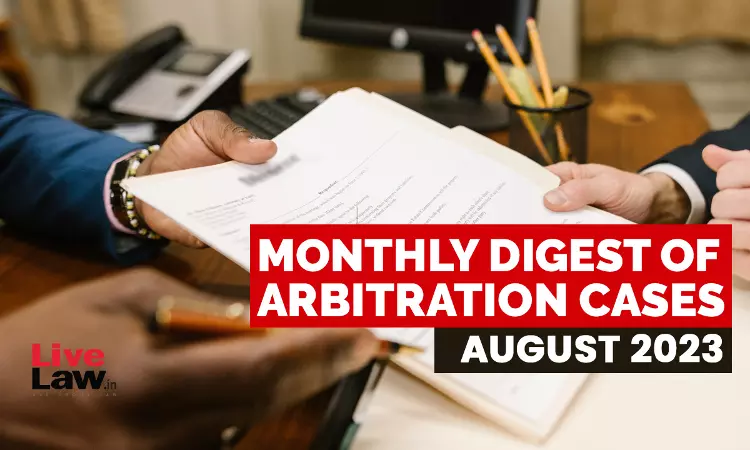Arbitration Monthly Digest: August 2023
ausaf ayyub
5 Sept 2023 4:00 PM IST
Supreme Court: Court Has No Power To Modify Award Under S. 34 Arbitration & Conciliation Act : Supreme Court Case Title: Larsen Air Conditioning and Refrigeration Company vs Union of India The Supreme Court reiterated that a court, under Section 34 of the Arbitration and Conciliation Act, has no power to modify an arbitration award. The limited and extremely...
Next Story



